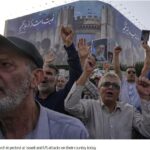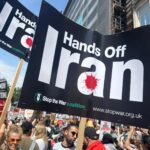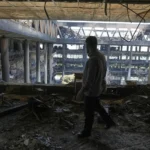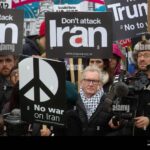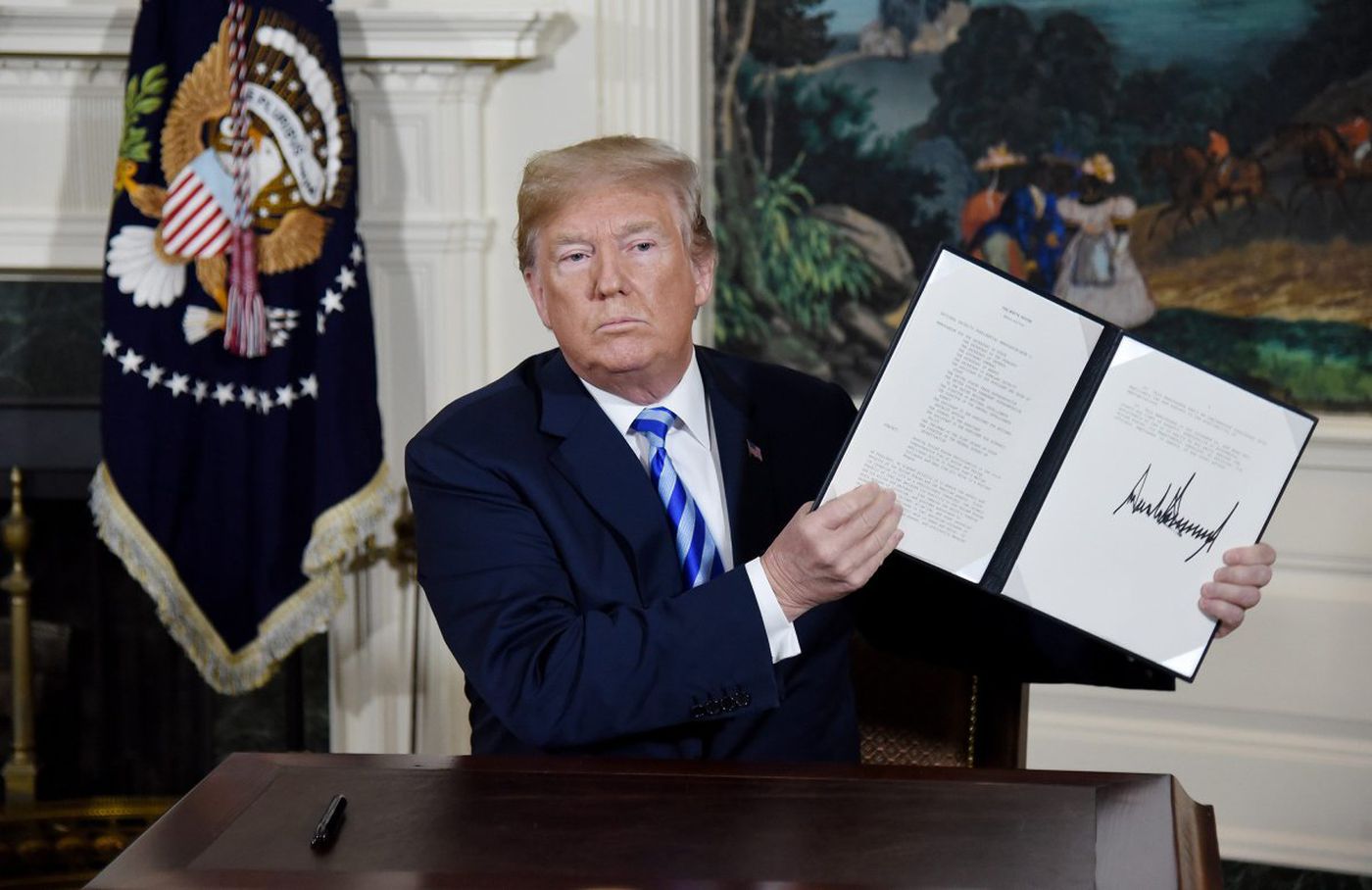
9th May 2018
Jane Green, on behalf of the Committee for the Defence of the Iranian People’s Rights (CODIR), assesses the impact of US withdrawal from the Iran nuclear deal.
US President, Donald Trump, has ended the engagement of the United States in the Iran nuclear deal, the Joint Comprehensive Plan of Action (JCPOA). Trump emphasised that discussions in recent months had taken place with allies in Europe and the Middle East, before coming to the conclusion that withdrawing from the deal was the only option. Trump omitted to mention that the advice from the European signatories, the UK, Germany and France was to stay with the deal and attempt to improve it. Clearly, Trump has ignored this advice.
On the other hand, Trump was clear that information provided by Israel – described by Trump as “definitive proof” of Iran’s nuclear ambitions – has been taken onboard. The Israelis allege that Iran has been racing towards the development of nuclear weapons – in spite of the fact that the nuclear inspection regime, under the terms of the JCPOA, has not been breached in the two years of its operation.
The deal was signed in 2015 under the Obama administration and engaged the key EU nations along with the US, China and Russia. In spite of the fact that the deal has barely impacted the international sanctions imposed upon the Iranian regime, Trump regards the deal as “the worst deal in history” and has consistently pledged to pull the US out of it.
The Israelis and Saudi Arabia, in a somewhat unholy alliance, back the US on the basis that anything which brings pressure to bear upon Iran, weakening the chances of an Iranian economic recovery, is in their interest. In a bizarre television performance last week, Israeli Prime Minister, Benjamin Netanyahu, took to the airwaves to allegedly reveal evidence of Iran’s development of nuclear weapons technology.
Quite where Netanyahu sourced his information is unclear, as the inspection regime headed by the International Atomic Energy Agency (IAEA) – as part of the terms of the JCPOA – has verified 10 times and most recently in February of this year, that Iran is in compliance.
Netanyahu has stated recently that Israel is prepared to go to war with Iran in order to stop Iranian influence in the war of intervention in Syria, stating:
“We are determined to block Iran’s aggression against us even if this means a struggle. Better now than later. Nations that were unprepared to take timely action to counter murderous aggression against them paid much heavier prices afterwards. We do not want escalation, but we are prepared for any scenario.”
Iran’s aggression against Israel appears to have been framed in the support it has provided to the government of President Assad in Syria. This has resulted in the striking of Iranian targets inside Syria by the Israelis several times over recent weeks.
The provocation from Netanyahu and Trump is matched in kind by the Iranian President, Hassan Rouhani, who recently suggested that:
“If the United States leaves the nuclear agreement, you will soon see that they will regret it like never before in history. Trump must know that our people are united, the Zionist regime (Israel) must know that our people are united.”
Iran has said that if the US re-imposes sanctions, it may resume enriching uranium.
Israel, on the other hand, has an undeclared nuclear arsenal of an estimated 200 nuclear warheads and is not a signatory to the international non-proliferation treaty.
The present announcement has the clear fingerprints of newly appointed US National Security Adviser, John Bolton. Bolton was one of the chief architects of the invasion of Iraq during the presidency of George W. Bush. During the past 20 years, Bolton has continually advocated military action against Iran with the aim of regime change.
In his many appearances on national television, Bolton has called for an attack on Iran – up to and including a full-scale invasion – and for the installation of a new government there. More than once he has said that after toppling the Iranian government, the US should invite surviving members of the American families held hostage in Iran during the Carter administration to the country so they could be part of a triumphal victory “celebration” at the US embassy in Tehran.
When it comes to the fight for peace and the struggle for democracy and justice in Iran, the Committee for the Defence of the Iranian People’s Rights (CODIR), is concerned that the Iranian government is already pursuing dangerous policies with its interventions in other countries. CODIR is also concerned that Iran is taking an economic path at home that not only thwarts human rights but hurts the wellbeing of the Iranian working class and its allies.
CODIR Assistant General Secretary, Jamshid Ahmadi, stressed that the real losers in the present scenario are the Iranian people.
“An attack on Iran by the West would give the government an excuse to levy even more repression against its own people,” said Mr. Ahmadi. “The nuclear deal was by no means perfect but it did allow some scope for reining in some of the more hard-line elements in the Iranian theocracy. That opportunity is now gone and the impact of increased sanctions will mean economic hardship combined with greater political repression for the Iranian people.”
The US sabotaging the deal will in fact directly impact upon the human rights situation in Iran. The regime will use the febrile political tension within the country and the excuse of having to confront foreign enemies in order to intensify its chokehold on any opposition or dissent towards its actions and policies – essentially fostering a siege mentality and an “us vs. them” situation in the country.
Extreme conservative elements will also cite the US abrogation of the deal as vindication of their position that “the Americans could not be trusted all along”.
Describing Iran as the leading state sponsor of terror, Trump has promised to impose sanctions at the highest possible level. This would mean that any nation dealing with Iran would also be subject to US sanctions. The European Union continues to support the agreement but whether this means anything is workable, given the US position, is doubtful.
Trump has massively raised the stakes in the Middle East and the threat to world peace has been stepped up accordingly.
*******
Jane Green is CODIR’s National Campaign Officer. For all information about CODIR views and news and activities contact codir_info@btinternet.com and/or visit www.codir.net







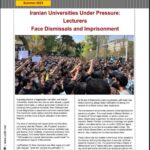
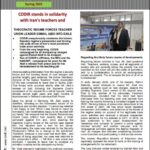




 Posted in
Posted in 
